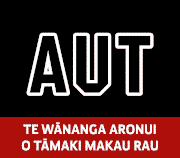This is particularly the case when considering violence, abuse, or harm imposed by another person or situation.
We all carry emotions linked to experiences from the past, and for some these emotions can be very powerful and lead to behaviour that has a negative impact on an intimate partner relationship.
When thinking about relationship conversations and money, previous experiences of trauma can cause one or both parties to view things through a ‘victim lens’.
We all carry emotions linked to experiences from the past
For some people, this perspective may leave them feeling the need to be in control due to not having any in past relationships.
Or the fear they have experienced in the past could cause them to be overly cautious, quiet or struggle to engage.
Either way, it is important to understand that what has happened historically can, if not managed, cause difficulties in the present.
Being aware of your own journey and that of your partner can help shape your conversation.
Take time to check in with how each other is feeling and make an effort to understand the pressures that could be impacting the conversation, each person’s level of engagement, and the decisions that are being made.
Below are examples of how understanding your partner’s trauma can shape your response.
Comment:
I never get it right, maybe you should just manage the money.
Possible Response:
We all make decisions that don’t work out as we hope – let’s just look at things together and work out a plan.

Comment:
I haven’t had control of my money in past relationships so I will take care of the budget.
Possible Response:
I understand your need to have control over your money – what if we plan a way to have money for bills and our own spending money to do what we like with?

Get a reminder so you can continue at a convenient time

“It is great to have the strategies and challenges come together so that you are learning together, sharing together and discovering together”
– Toolkit user
Good Shepherd NZ in partnership with Dr Ayesha Scott
AUT Finance Department
Disclaimer
The information, content and materials provided in our Healthy Financial Relationships Toolkit is for general informational purposes only and does not take into account the financial situation and/or particular needs of any person. Before making important financial decisions, you should seek professional advice if possible. This Toolkit contains links to other third-party websites. Such links are only for the convenience of the reader, user or browser. Good Shepherd NZ and AUT do not endorse the contents of third-party sites.
Did you find this useful?
We are a not-for-profit organisation working to improve the financial and social wellbeing of New Zealanders.
The resources on this website are provided free of charge to make sure they are available for people who need them.
If your organisation found these resources helpful, please consider making a donation to ensure we can continue supporting those people who need our help.
You can also make a donation, or set up a recurring donation, by contacting us directly



